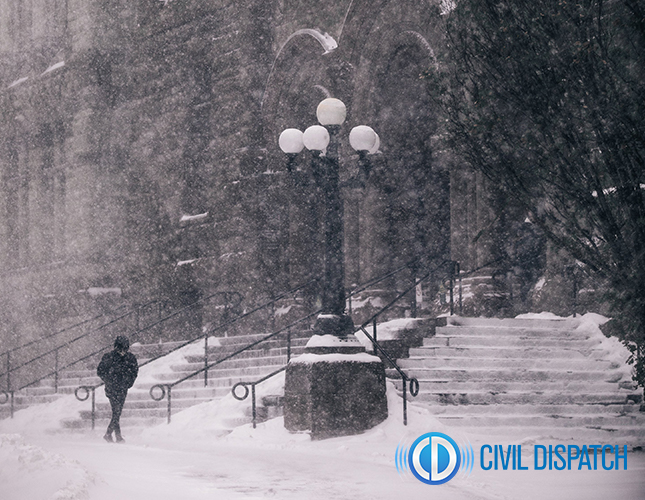
Winter 2018-2019 has been a very newsworthy season all across the country. Snow fell throughout the midwest on what seemed like a weekly basis. Las Vegas even saw enough snowfall for schools to have a rare snow day. West Hollywood, in the land of sunny California, had snowfall throughout the hills, the first time since 1962.
How much actually came down this Winter
The National Oceanic and Atmospheric Administration defines winter as the months of December, January and February. During those three months, the NOAA states that the U.S. has in fact experienced the wettest winter on record. This winter’s total precipitation throughout the U.S. brought in 9.01 inches (rain & snow) which is 2.22 inches above the average, leading to the wettest winter on record. The last winter this intense was back in 1997-1998, tackling that year’s record by 0.02 inches.
Although the snow may have come down in droves on what seemed like a weekly basis this winter, the average temperature throughout the country was actually on the higher end bringing in an average temperature of 33.4 degrees.
What does this mean to us
As weather statistics hit new highs such as the wettest winter on record, is it a sign of things to come? It very well could be. According to the National Climate Assessment, the U.S. has seen a five-percent increase of annual precipitation since 1900. Sure five-percent may not seem like much, but if you take into account how technology and consumer habits have evolved over the last 50 years, that number could increase at a much higher rate by 2100.
Take another example, the last 30 years have seen a continual growth of above-average temperatures. In fact, the last year that was under the 1900’s average was back in 1985. A lot has changed since then, that was the same year CDs were introduced, the first .com was registered and the famous Live Aid global concert happened. 30 years is a very long time, a lot can happen. The record highs with precipitation and temperature are likely going to increase year over year based on the supporting evidence gathered from National Climate Assessment.
Prepping for the years to come
The odds of seeing a post-apocalyptic type scenario happen in our lifetimes because of climate change may be small, but you can still do little things to prepare your family. More ice melt, buying an extra or a heavier duty shovel to get you through the next winter. Stocking up on 3 month food supplies earlier when the seasons change so you are prepared for a big snow event. Taking preventative care of your roof and your house’s foundation before next year’s winter hits are all items that should be on every prepper’s immediate to do list.
If becoming a prepper household is list after the winter we had, sign up for text messages from Civil Dispatch for up-to-date information on threats and severe weather in your area!